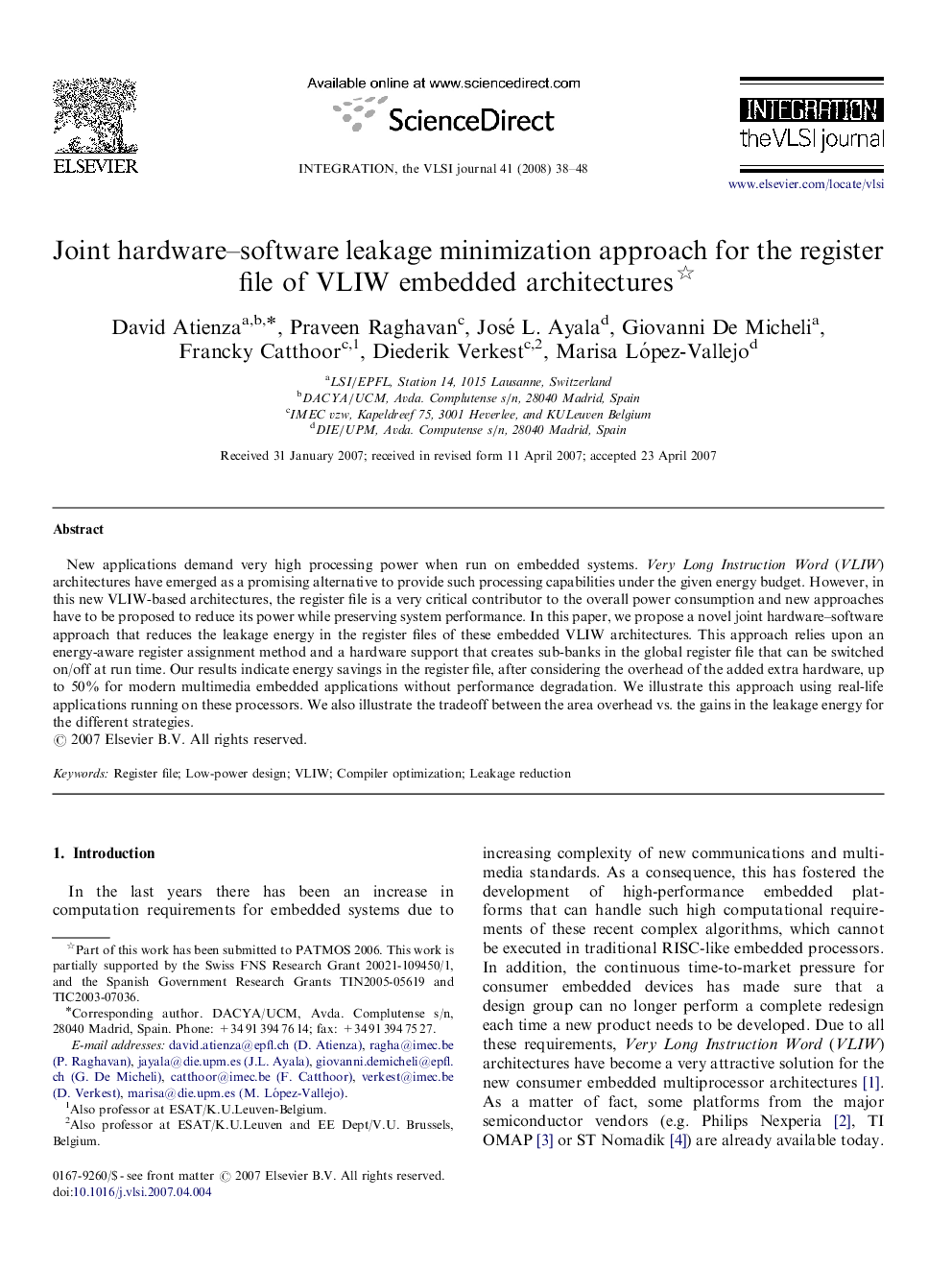| Article ID | Journal | Published Year | Pages | File Type |
|---|---|---|---|---|
| 542924 | Integration, the VLSI Journal | 2008 | 11 Pages |
New applications demand very high processing power when run on embedded systems. Very Long Instruction Word (VLIW) architectures have emerged as a promising alternative to provide such processing capabilities under the given energy budget. However, in this new VLIW-based architectures, the register file is a very critical contributor to the overall power consumption and new approaches have to be proposed to reduce its power while preserving system performance. In this paper, we propose a novel joint hardware–software approach that reduces the leakage energy in the register files of these embedded VLIW architectures. This approach relies upon an energy-aware register assignment method and a hardware support that creates sub-banks in the global register file that can be switched on/off at run time. Our results indicate energy savings in the register file, after considering the overhead of the added extra hardware, up to 50% for modern multimedia embedded applications without performance degradation. We illustrate this approach using real-life applications running on these processors. We also illustrate the tradeoff between the area overhead vs. the gains in the leakage energy for the different strategies.
